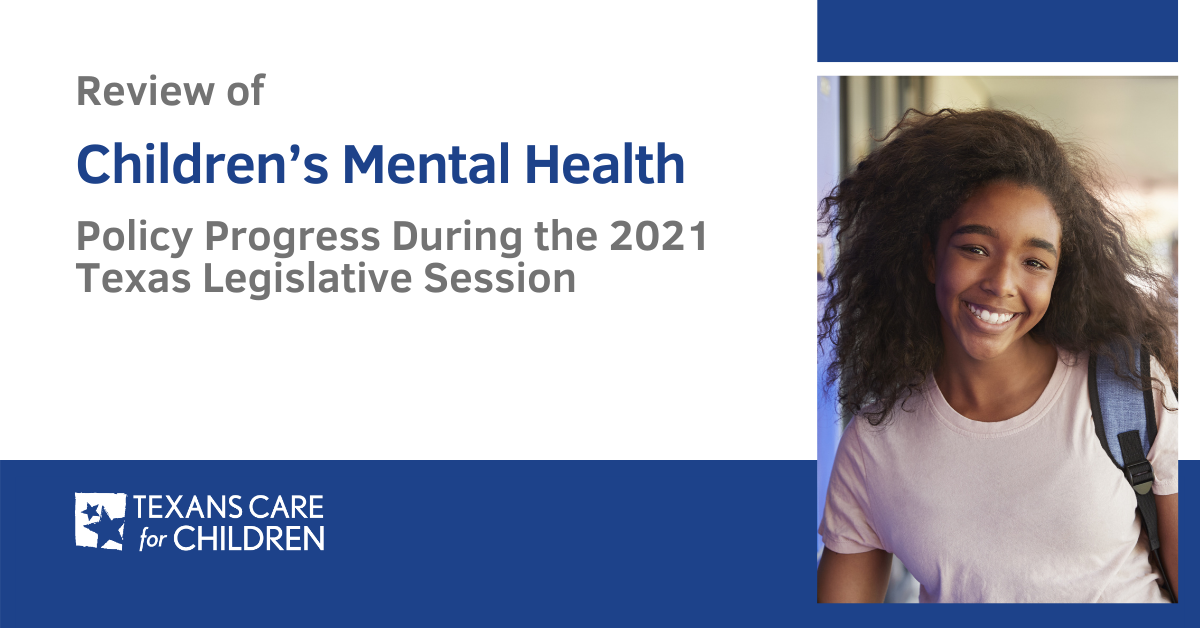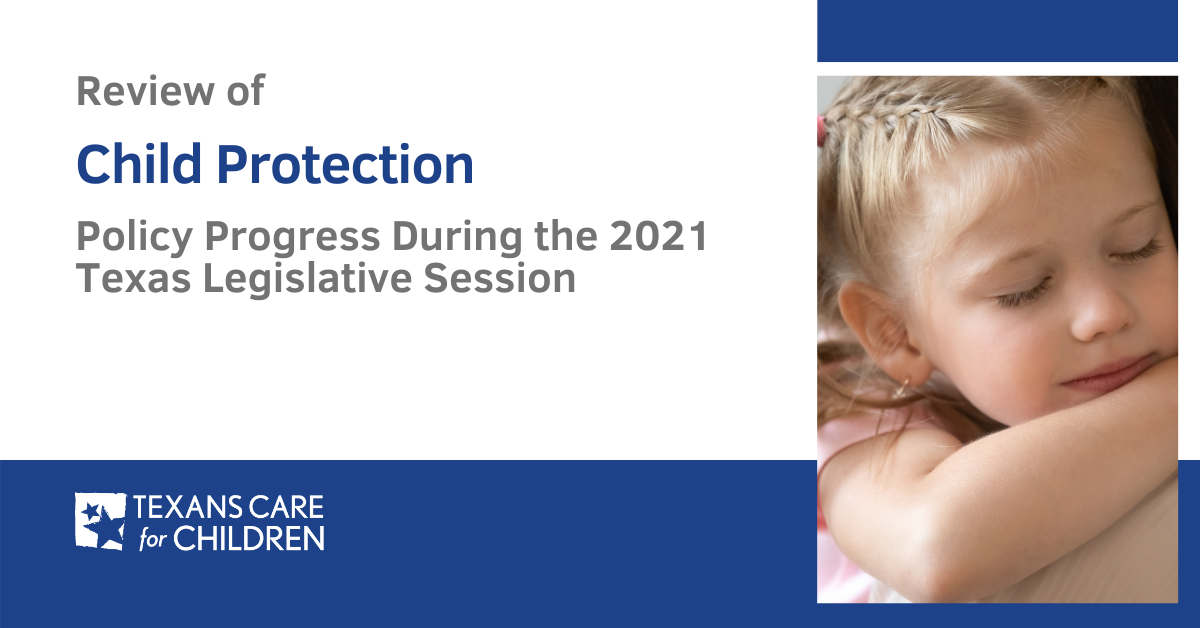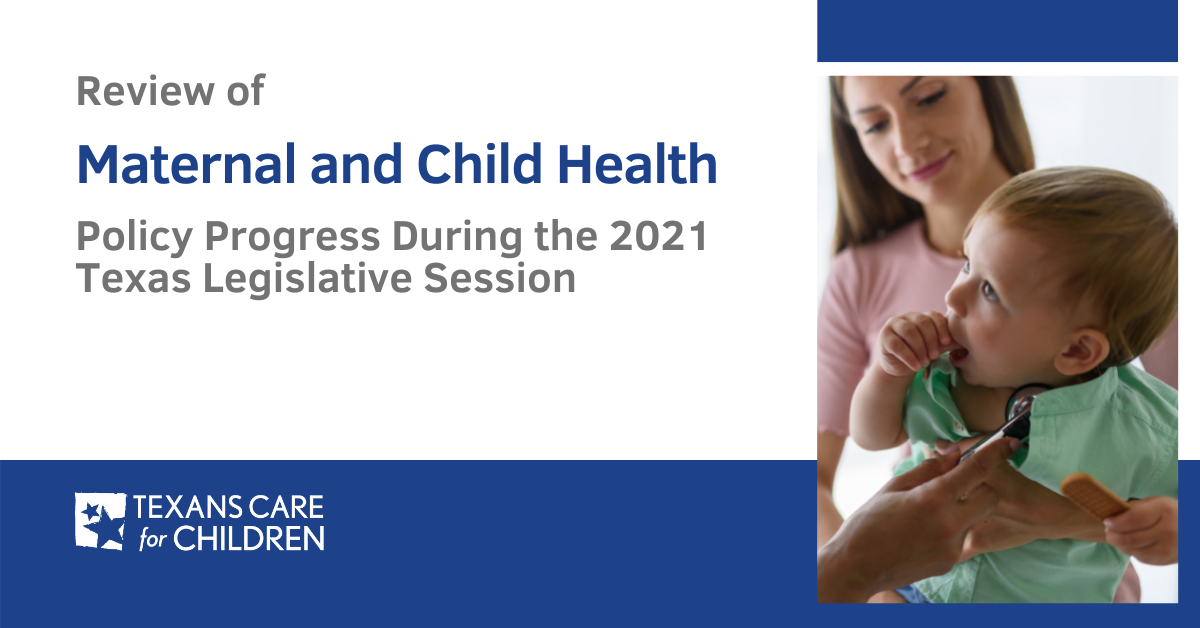This session we were pleased to see legislators pass bills in support of social-emotional learning (SEL), school counseling, and suicide prevention, but the Legislature failed to take other steps to adequately support student mental health and address the trauma of the pandemic. After years of effort by our staff and partners to highlight the importance of SEL, the Legislature passed bills to allow districts to use an existing funding stream to provide SEL programs and to ensure key SEL skills are incorporated into school curricula and programs. Lawmakers also passed a bill to ensure school counselors can spend more of their time counseling students. Unfortunately, the Legislature failed to dedicate funding for schools or the Texas Education Agency (TEA) to address learning loss rooted in the social-emotional effects of the pandemic or to prevent students whose behaviors are rooted in trauma from being pushed out of their classrooms. Additionally, we worked closely with legislators and our Texas Suicide Prevention Council partners on proposals to help reduce the rising rates of youth suicide in Texas. We appreciate the Legislature passing bills to require student IDs to include contact information for suicide prevention crisis services; improve suicide prevention practices in foster care facilities; and continue the Statewide Behavioral Health Coordinating Council work to improve suicide prevention efforts across state agencies.
There was frequent discussion this legislative session about the impact of the pandemic on student mental health, and we were glad to see the Legislature pass two bills that support student SEL within schools. HB 332 by Rep. James Talarico and Sen. Eddie Lucio, Jr. allows school districts to use compensatory education funds to provide programs that build skills related to managing emotions, establishing and maintaining positive relationships, and making responsible decisions. The bill ultimately passed as an amendment to HB 1525 by Rep. Dan Huberty and Sen. Larry Taylor. Additionally, the Legislature passed SB 123 by Sen. Nathan Johnson and Rep. John Turner to ensure SEL skills are integrated within state curriculum standards and character education programs. Over the past several sessions, our team and partners have consistently called on legislators to address the important link between social-emotional development, mental health, and student learning — something that has become even more critical in the wake of the pandemic. We appreciate these legislators working to pass these bills and collaborating with our team and partners.
The Legislature also passed SB 179 by Sen. Lucio and Rep. Dan Huberty, giving school counselors more time to focus on what they are trained to do — counsel students — and reducing the time they spend on administrative duties, such as overseeing standardized testing. The bill required years of effort by legislators and stakeholders, with the Texas Counseling Association leading the advocacy efforts. The Legislature also provided targeted increases in funding for programs to help connect students with mental health services in school or in the community through the Texas Child Access Through Telemedicine (TCHATT) program and Communities in Schools.
We were also pleased to see the Legislature pass bills aimed directly at preventing youth suicide. SB 279 by Sen. Juan “Chuy” Hinojosa and Rep. John Bucy requires student ID cards in grades 6-12 and higher education to include the contact information for suicide prevention crisis services. The Legislature also passed HB 4041 by Rep. Victoria Neave as an amendment to SB 1896 (an omnibus foster care bill by Senator Lois Kolkhorst and Rep. James Frank) to require residential child care facilities and foster care child placing agencies to have evidence-based suicide prevention, intervention, and postvention policies in place. Additionally, the Legislature passed HB 4074 by Rep. Todd Hunter and Sen. José Menéndez to require the Statewide Behavioral Health Coordinating Council to prioritize data-informed suicide prevention efforts in its strategic planning and interagency coordinating efforts. A rider in the state budget bill also requires the Council to provide an update to a report on suicide and suicide prevention in Texas that was required by HB 3980 from the 2019 session, with additional data and recommendations specific to suicides among youth in foster care. HB 1144 by Rep. Ana-Maria Ramos was scheduled for a House vote but unfortunately did not come up before the deadline to pass. The bill would have ensured school districts provide educators with suicide prevention training at least once every two years. Our team helped lead advocacy efforts on these bills in coordination with the Texas Suicide Prevention Council.
Children and youth with mental health concerns need access to treatment and support services to keep them as connected as possible to their families, schools, and communities. With the passage of SB 642 by Sen. Royce West and Rep. Gina Hinojosa, families will be able to access residential treatment services for their children through HHSC's relinquishment avoidance program without DFPS first conducting a child abuse or neglect investigation. Unfortunately, the Legislature failed to pass other bills that would have improved access to treatment and recovery services for young people. For example, the clock ran out on HB 240 by Rep. Senfronia Thompson after it was scheduled for a vote of the full House. The bill, and its Senate companion, SB 51 by Sen. Judith Zaffirini, would have required private health plans to cover treatment of serious emotional disorders among children. The Legislature also failed to pass bills that aimed to improve access to youth and family peer support services that help keep children and youth with significant mental health concerns in their homes and communities and out of more restrictive and costly settings, like hospitals, foster care, and the justice system.
Despite the positive steps outlined above, the Legislature largely fell short of ensuring that schools are equipped to support students’ mental health. The Legislature failed to dedicate either state or federal funding to help schools implement multi-tiered systems of support to address learning loss rooted in the social-emotional effects of the pandemic. The House passed a budget rider that would have dedicated funding in the School Safety Allotment to social, emotional, mental health, and school climate strategies, but the conference committee removed the rider from the budget. We will monitor implementation of the budget to determine if a last-minute budget rider will allow TEA to use federal COVID relief funding to provide meaningful support to SEL and student mental health strategies allowable under the federal law. During the upcoming special session, the Legislature should work to ensure that federal relief funding is available to school districts to address this challenge.
The Legislature also neglected to pass important bills to help ensure schools respond to student trauma and other mental health concerns in ways that support students’ education, health, and safety. For example, the Senate did not hold a hearing on two key bills by Sen. Menéndez: SB 406 would have required school boards and superintendents to receive training in trauma-informed schoolwide practices and SB 2063 would have provided alternatives to suspension or expulsion for lower-level student conduct related to substance use. These bills would have helped ensure that behaviors rooted in trauma and other mental health concerns don’t contribute to educational gaps and the school-to-prison pipeline. The Legislature did pass a bill requiring school boards to receive training on school safety, HB 690 by Rep. Metcalf and Sen. Zaffirini, so we will work to ensure trauma-informed training is included as the bill is implemented.





